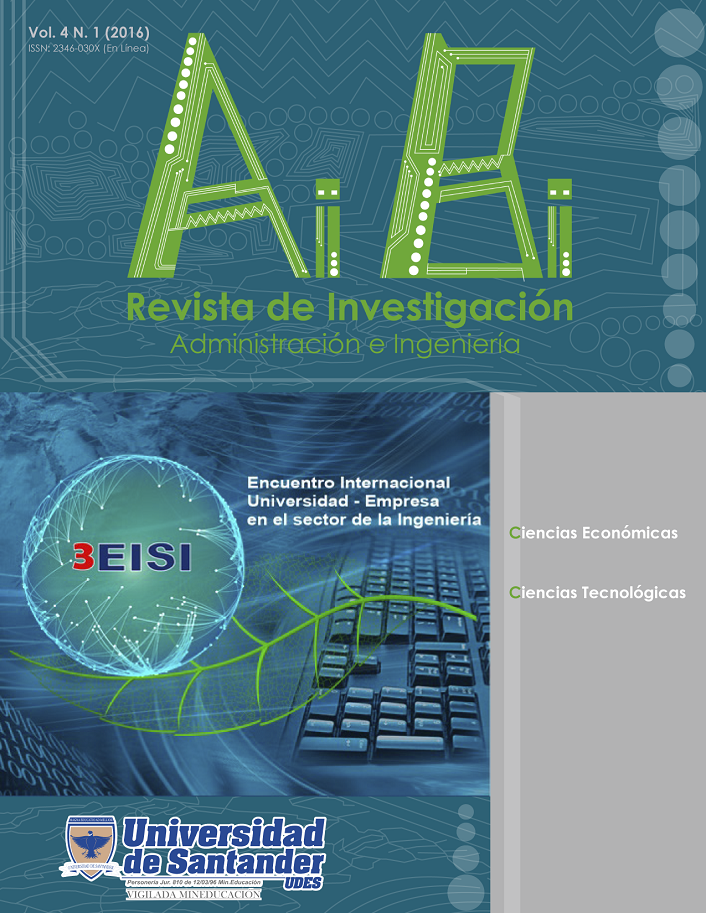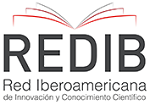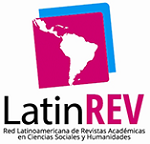Reflexiones para la construcción de la epistemología ambiental en el siglo XXI.
DOI:
https://doi.org/10.15649/2346030X.386Palabras clave:
Globalización, Modernidad, Racionalidad, Desarrollo sustentable y Epistemología Ambiental.Resumen
La temática ambiental en el siglo XXI ha tenido diversidad de posturas sobre todo por la interdisciplinariedad y multidisciplinariedad de los factores que permiten su abordaje, comprensión y explicación sobre la realidad socionatural a escala global y local, convirtiéndose en un factor indispensable para la construcción de la epistemología ambiental en este tiempo postmoderno. De ahí que, en este ensayo se enfoquen algunas ideas en cuanto a los fundamentos históricos que incorporan el tema de la globalización, modernidad, racionalidad ambiental de Leff y el desarrollo sustentable del informe Brundtland como un importante apartado internacional ante una diversidad de acciones antrópicas generadas durante el siglo XX que han contribuido con alterar el equilibrio en la dinámica de los ecosistemas. A su vez, reconocer algunos problemas que plantea Boff en el apartado “La carta de la tierra” relacionados con la sobreexplotación de los recursos, ecología, pensamiento mercantilista, economicista y el modelo capitalista depredador que no sólo ha afectado el sistema natural sino también el sistema social. Por esa razón, es que estas reflexiones se llevan a cabo para tener una visión holística entre el ser humano- sociedad- naturaleza y sus implicaciones en la dinámica de este nuevo siglo con compromiso ético basado en la responsabilidad ciudadana, la participación y la toma de decisiones en el campo de la política, cultura, economía, bajo los esquemas de la racionalidad que apunten hacia una sustentabilidad del planeta en todas sus dimensiones. Finalmente, con este texto reconocer el papel que tiene la educación para la construcción de la epistemología ambiental, el estudio del pensamiento complejo y el escenario en que se encuentran los nuevos retos para lograr la transformación de un modelo civilizatorio comprometido con la naturaleza, el planeta tierra “nuestra casa común” y el desarrollo humano.
Referencias
Universidad Pedagógica Experimental Libertador, Serie azul. “Educación ambiental”. Editorial, Caracas, Venezuela: FEDUPEL, 2000.
I. Vallejo, D. Sánchez, “Del antropocentrismo y el naturalismo a otras racionalidades y ontologías”. Revista letras verdes revista del programa de estudios socioambientales, 2011 [En Línea], 8, p. 29-31. FLACSO, Ecuador. Disponible: http://revistas.flacsoandes.edu.ec/letrasverdes/article/view/897/858.
N. Pedraza, “Plan de acción para formadores ambientales. Educación y resolución de conflictos ambientales”. Bogotá, Colombia: Magisterio, 2003.
C. Porto, “El Desafío Ambiental”. PNUMA, 2006.
R. Grana, “Ambiente ciencia y valores. Fundamentos científicos y axiológicos de la ecología”. Editorial Argentina: Espacio, 2000.
A. Arana, “Ambiente y sociedad. En un enfoque integrador”. Ed. Aragua, Venezuela: INTERUPEL, 1999.
R. Sánchez, “El desafío ambiental. Ecología y medio ambiente”. Editorial, Bogotá: Transversales Magisterio, 2004.
E. Left, “Complejidad, racionalidad ambiental y diálogo de saberes”, 2006. Ponencia I Congreso Internacional, Interdisciplinar de participación, animación e intervención socioeducativa. Barcelona, noviembre de 2005. [En línea]. Disponible: http://www.magrama.gob.es/es/ceneam/articulos-de-opinion/2006_01eleff_tcm7-53048.pdf.
L. Boff, “La Carta de la Tierra: Una promesa”. 2005.
E. Left, “Globalización, racionalidad ambiental y desarrollo sustentable” (s/f). [En línea]. Disponible: http://www.ambiente.gov.ar/infotecaea/descargas/leff08.pdf.
J. Balbino, “El ambiente: Paradigma del nuevo milenio”. Editorial, Caracas- Venezuela: Alfa, 2009.
L. Cubillos, “Las ciencias ambientales: Una nueva área del conocimiento. Red colombiana de formación ambiental”. Bogota, D.C. Colombia: Primera edición, 2007. [En línea]. Disponible: http://media.utp.edu.co/centro-gestion-ambiental/archivos/metodologia-de-la-investigacion-cualitativa/lascienciasambientalesunanuevaareadeconocimiento.pdf
Descargas
Publicado
Cómo citar
Descargas
Número
Sección
Licencia
La revista ofrece acceso abierto bajo una Licencia Creative Commons Attibution License

Esta obra está bajo una licencia Creative Commons Attribution (CC BY 4.0).









